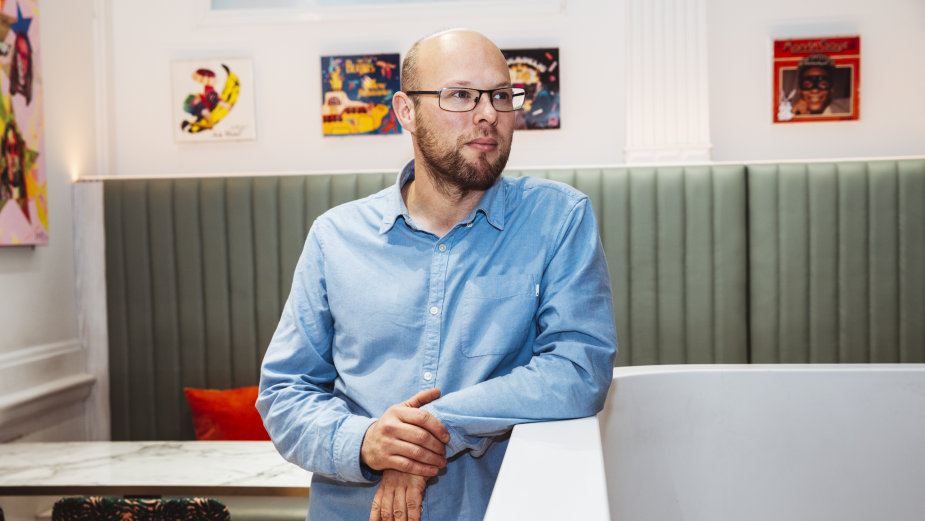
Magic Numbers: James Calvert on Data That Delights, Inspires and Empowers

James Calvert is chief data strategy officer at M&C Saatchi. A customer-centric leader with expansive experience of making data useful, he helps CEOs, CMOs, CDOs and their product and marketing teams understand, get, grow and keep consumers with less guesswork, turning raw data and digital technology into insight, brand and business strategy, new product propositions, connected creative and commerce solutions.
LBB> What’s the number one question that clients are coming to you with when it comes to how they can better use data to enhance the creativity of their content and experiences?
James> Our clients are marketers, people who appreciate a well-executed creative idea. People who know that data has the raw potential to make creative work more efficient or more effective. Of course, whilst there isn’t a single question, there is a tendency for most questions to be in pursuit of growth. Ideally, growth with less guesswork. That’s where we see data really come in as a welcome companion of creativity. Data can help us make better decisions. It can inform which customers to acquire or grow. It can direct what, where and how we communicate, the questions we ask and how we best use creativity to serve.
LBB> How can you make sure that data is elevating creative rather than forming a windtunnel effect and knocking all the interesting or unique edges off that make something distinctive?
James> The dastardly data that deceives creative decision makers, can be the very same data that delights, inspires, and empowers. Data is neither good nor bad. Numbers, words, images, sounds. All data. All just information. When seen in context and with meaning, data becomes the hoist that ultimately lifts a creative thought into our minds and memories. Of course, the key thing here, which is hopefully not a big secret, is that it is the people, the decision makers along the path to creativity that make sure data is adding something, rather than taking it away.
LBB> Can you share with us any examples of projects you’ve worked on where the data really helped boost the creative output in a really exciting way?
James> Sure! Here’s two different examples, each exciting in their own little way.
For Costa Coffee, we turned raw data into habits and patterns to inspire a simpler and more generous loyalty club. The new proposition has a great new creative look and a robust communications ecosystem, including the new app which helps you get free coffee after every four when you bring in a reusable cup.
For IKEA Family, we turned millions of receipts into content recommendations. We found obvious things people tend to buy together, like charcoal and barbecues, but more interestingly less immediately obvious things, like storage boxes before buying a new kitchen. These associated products inspired a fresh approach to creative content and the way products are featured across channels.
LBB> More brands are working to create their own first party data practice - how can a brand figure out whether that’s something that is relevant or important for their business?
James> It is. Both relevant and important to almost all brands that wish to grow. I’d struggle to think of a brand that couldn’t find opportunity in doing more with their first party data. If a brand isn’t already working on a first-party data strategy, you can start right now by simply asking yourself a few questions. What data do you collect? When and why do you collect it? How do you use it? What else might you like to know? How will that knowledge unlock better outcomes for the customers?
LBB> We talk about data driving creativity, but what are your thoughts about approaching the use of data in a creative way?
James> At M&C Saatchi we believe Creativity Changes Everything. The power of creativity to make change is enormous; it makes the complex simple. It turns data into inspiration. A click into an experience. And an interruption into a valued interaction. So when it comes to using data in a creative way, 100% yes. From a young age our education encourages us to choose to be an artist or scientist. Psychologists tag us as left brain or right brain. Are we rational or emotional? Analytical or intuitive? It’s tempting to accept the simplified story we tell ourselves, that we can only do one or the other. But it does us all a disservice. We may not ever become polymaths with famous accolades like Da Vinci, (or even want to), but if we can do more to recognise that there is no rule that says creatives can’t work with data or data experts can’t be creative, then we can expect to see and discover many more interesting opportunities to make change.
LBB> "Lies, damned lies, and statistics" - how can brands and creative make sure that they’re really seeing what they think they’re seeing (or want to see) in the data, or that they’re not misusing data?
James> There are many hazards we could trip on when working with data. We could spot something we like but be looking at incomplete data. We could get lost in pretty charts and infographics, that provide little direction as to what to do. We could even hijack a hypothesis, intentionally manipulating data to prove a point. Let’s assume we all have good intentions, whilst not a cast-iron guarantee, by zoning in on the right data to use, extracting something relatively crude and then openly refining it until we have something powerful, we can have collective understanding and confidence in the data we are using.
LBB> What are your thoughts about trust in data - to what extent is uncertainty and a lack of trust in data (or data sources) an issue and what are your thoughts on that?
James> Data really is just bits and bytes. It doesn’t have an agenda, a sleight of hand, or masterplan to manipulate us into doing its bidding. However, data is collected, managed and shared by people, and intentionally, or otherwise, some people do have agendas and desires to take advantage of us. With that in mind, concerns around making decisions based from data can be solved by simply spending time understanding the data set. Once you know why and how the data originated and how it is updated, it becomes a bit easier to build confidence in using it to grow your business.
LBB> With so many different regulatory systems in different markets regarding data and privacy around the world - as well as different cultural views about privacy - what’s the key to creating a joined-up data strategy at a global level that’s also adaptable to local nuances?
James> There is no universal solution here. With multiple regulations, rules and of course interpretations, some compromises must be made. Should all markets default to the most restrictive regulations? Should markets that are more open progressive make adjustments? When data fuels your growth or at the very least, prolongs a hoped survival, these difficult decisions force a trade off on the tension between customer and commercial needs. Despite the complexity and variance, in general the intent behind privacy regulations is clear, to protect the interests of each individual against misuse of the data they volunteer or leave behind. It’s not perfect, but I suspect the brands who keep this in mind will be the ones who ultimately thrive.
LBB> What does a responsible data practice look like?
James> Being responsible involves doing the right things and doing things right. So, a responsible data practice embodies this spirit and manifests it in the vision, recommendations and day-to-day actions of everyone in the team. Just because it’s not illegal today or you can find a technical workaround, doesn’t automatically mean you should do it.
LBB> In your view, what’s the biggest misconception people have around the use of data in marketing?
James> One of the big misconceptions around the use of data in marketing today is it’s someone else’s responsibility to do the data thing. To be clear, I’m not saying that brands and their partners shouldn’t have dedicated analysts, data scientists or marketing technologists. They 100% should. But the idea that as a marketeer, you can just outsource your data strategy, insight work, analytics, and reporting to non -marketeers and expect the best response every time is redundant. Every marketeer, at every level, should be capable of interrogating and extract some basic meaning from data – and to use this to inspire creativity, help people decide or optimise a campaign. Put more bluntly, using data to make your marketing better is not someone else’s job, it’s yours.
LBB> In terms of live issues in the field, what are the debates or developments that we should be paying attention to right now?
James> Right now, there are two forces playing out that will one way or another, impact us as marketeers.
The growth-at-all -costs mindset that has fueled fast, frequent hires and the buildup of large data science and technology teams at venture backed scaleups is starting to unwind. There’s a shift towards more companies operating profitably. This means change and change means opportunity. If you don’t already actively nurture direct relationships with your customers, now is the next best time to look at that – and if your already do, whether you’re the champion or the challenger, it might be worth doubling down.
The other live issue is the cost-of-living crisis, which is set to have a major impact on customer behaviour. Staying in, cutting back, doing without, trading down. Every brand will face its own challenges and there is plenty of scope for brands to make data useful to help them respond in the right ways.















